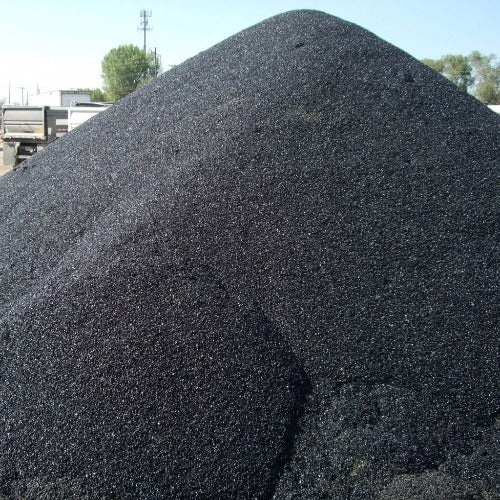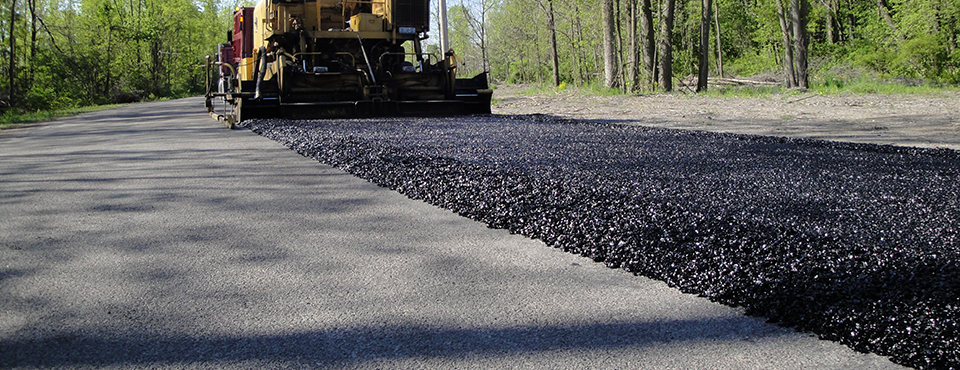Restore Sturdiness: Asphalt Repair Solutions Featuring Cold Mix Asphalt
Restore Sturdiness: Asphalt Repair Solutions Featuring Cold Mix Asphalt
Blog Article
Cold Mix Asphalt: Transforming the Means We Construct Roadways
As the facilities field remains to evolve, the utilization of cold mix asphalt presents an appealing change in roadway building and construction techniques. Its versatility to different climate condition and sustainable features have actually stimulated rate of interest in the building market. The ingenious properties of chilly mix asphalt are challenging traditional road-building techniques, leading the way for improved effectiveness and toughness. This transformative product is not only reshaping the construction landscape yet additionally increasing fascinating questions concerning its lasting effect on facilities development (Asphalt Repair).
Advantages of Cold Mix Asphalt
What advantages does cool mix asphalt deal over conventional warm mix asphalt in road building and construction jobs? Cold mix asphalt supplies several advantages that make it a preferred selection in certain scenarios. One vital advantage is its ability to be used in all climate condition, unlike warm mix asphalt which needs certain temperature level conditions for laying and blending. This adaptability allows for year-round building and construction, decreasing project timelines and costs related to climate delays.
Moreover, cool mix asphalt can be stocked for future use, giving convenience and price savings for maintenance projects. Its ease of application, calling for no specific devices or home heating, makes it perfect for quick repair services and patching. Additionally, chilly mix asphalt is extra eco-friendly as it requires less energy for production and discharges lower degrees of greenhouse gases contrasted to hot mix asphalt. These benefits integrated make cool mix asphalt a versatile and efficient choice for various road building projects.

Environmental Advantages
One of the crucial ecological advantages of cool mix asphalt is its lower carbon impact compared to warm mix asphalt. Additionally, cool mix asphalt is usually made utilizing recycled products such as redeemed asphalt sidewalk (RAP) and recycled asphalt roof shingles (RAS), additional reducing the need for brand-new raw materials and drawing away waste from land fills.
Additionally, the use of cool mix asphalt can lead to decreased energy consumption throughout building as a result of its capability to be applied making use of standard devices without the demand for additional home heating processes. This not only minimizes gas consumption yet likewise decreases air pollution and boosts air quality in the bordering locations. By picking cold mix asphalt for road jobs, building and construction firms can make a positive effect on the setting while still making sure premium and long lasting roadway surface areas.
Versatility in Weather
In road construction projects, the versatility of chilly mix asphalt in different weather improves its practicality and performance. Unlike warm mix asphalt, which requires high temperatures throughout blending and installation, cold mix asphalt can be used in a wide range of climate condition. Asphalt Repair. This adaptability makes it an important option for roadway construction in regions with severe temperatures or unpredictable weather patterns
Cold mix asphalt remains practical also in winter, permitting construction jobs to continue throughout cold weather when warm mix asphalt might not be a practical option. Its ability to set and treat without the need for heats guarantees that road repair and maintenance can be brought out year-round, lessening disruptions to website traffic flow and lowering total project timelines.
In addition, chilly mix asphalt's resilience to wetness makes it ideal for areas susceptible to constant rain or high humidity. Its flexibility and durability enable it to withstand expansion and contraction brought on by temperature level variations, adding to longer-lasting roads that call for fewer fixings in time. Overall, the versatility of chilly mix asphalt in various climate condition makes it a trustworthy choice for lasting and effective roadway construction tasks.

Cost-Effectiveness and Sustainability
Taking into consideration the economic and ecological impacts of roadway building and construction materials, exactly how does the cost-effectiveness and sustainability of cold mix asphalt contrast to standard choices? Cold mix asphalt supplies a compelling economical and lasting remedy for roadway building and construction. In terms of cost-effectiveness, chilly mix asphalt typically needs reduced production temperature levels, decreasing energy usage and manufacturing prices contrasted to hot mix asphalt. The ability to be stocked for lengthy durations without setting also reduces waste and permits simpler upkeep and repair work, resulting in general expense financial savings. In addition, the use of cold mix asphalt can result in decreased transportation expenses due to its longer shelf life and the opportunity of being generated on-site.
From a sustainability viewpoint, chilly mix asphalt uses several ecological advantages. Its lower production temperature levels lead to decreased greenhouse gas emissions and power intake, lining up with initiatives to mitigate environment adjustment. The capacity to reuse existing materials into cold mix asphalt adds to a circular economy strategy, minimizing the need for virgin materials and reducing overall environmental influence. Generally, the cost-effectiveness and sustainability of cold mix asphalt make it an encouraging choice to typical road construction products.
Effect On Roadway Longevity
Roadway resilience dramatically affects the long-term efficiency and upkeep needs of asphalt sidewalks. Cold mix asphalt, with its distinct attributes, has a remarkable influence on road toughness. One vital facet is the ability of cold mix asphalt to withstand temperature variations without compromising its structural integrity. This adaptability helps the pavement to resist rutting and fracturing triggered by changing weather, resulting in a longer service life for the roadway.
Additionally, the chilly mix asphalt's improved resistance to dampness damages plays an important role in keeping roadway sturdiness. Standard warm mix asphalt is a lot more vulnerable to moisture seepage, which can compromise the pavement framework over time. In contrast, cold mix asphalt's make-up permits it to much better resist water infiltration, decreasing the likelihood of fractures and other kinds of degeneration.
Conclusion
To conclude, chilly mix asphalt offers a multitude of benefits for roadway index construction, including ecological advantages, convenience in climate condition, cost-effectiveness, and boosted road durability. Its capacity to be used year-round and its lasting techniques make it a transformative choice for creating roadways that are both ecologically pleasant and resilient. With its ingenious method and long-lasting results, cool mix site link asphalt is revolutionizing the method we construct roads for a much more sustainable future.
What advantages does chilly mix asphalt deal over typical hot mix asphalt in road building and construction projects? Furthermore, cold mix asphalt is a lot more eco friendly as it needs much less power for manufacturing and emits reduced levels of greenhouse gases compared to warm mix useful site asphalt. Asphalt Repair. Additionally, chilly mix asphalt is usually made using recycled materials such as redeemed asphalt pavement (RAP) and recycled asphalt shingles (RAS), further minimizing the need for brand-new raw products and diverting waste from land fills
Unlike hot mix asphalt, which requires high temperature levels throughout blending and installment, cold mix asphalt can be used in a large array of climate problems. In terms of cost-effectiveness, cool mix asphalt typically requires lower manufacturing temperatures, minimizing power intake and production costs compared to hot mix asphalt.
Report this page